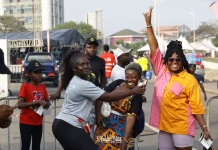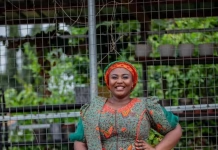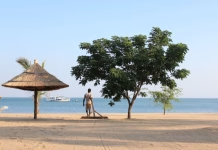
Some selected women from the Nabdam District of the Upper East Region have been trained to venture into pigs and guinea fowls farming to improve livelihoods and contribute to reducing poverty.
The training was organized by TEERE, a local Non-Governmental Organization working in the Upper East Region, as part of the implementation of the Plan International Ghana Women’s Voice and Leadership project.
The two and half-year project is being funded by Global Affairs Canada and it was organized for 150 women from Kongo, Logre, Pelungu, Yakoti, and Zanlerigu communities.
According to Ms Juliana Atagra, the Head of Finance and Administration, TEERE, a German-based Philanthropist, Ernst Knapp constructed a training centre at Kongo where pigs and guinea fowls were being reared.
She said the centre was to support the women to learn the practical forms of producing quality pigs and guinea fowls to empower them economically and contribute to the achievement of Sustainable development Goals.
The technical training was to enable the rural poor women to venture into pigs and guinea fowls rearing as economic activities especially during the dry season with TEERE facilitating market linkages for their products.
She said the beneficiary women who were expected to also train their colleagues at their respective communities, were expected to contribute to ensuring that the project impacted about 3,000 persons and households.
“This is basically to economically empower these rural women to have access to financial resources. This would, in the long run, ensure the independence of these women within their households and communities, ensure access to and control over resources, and participation in decision making,” she added.

Ms Atagra explained that as part of the project implementation, education strategies had been designed to engage various stakeholders to contribute to addressing issues affecting progress and empowerment of women and girls in the beneficiary communities.
She said apart from the lack of economic activities that had made some women poor, teenage pregnancy, child marriages, child labour, domestic violence as well as sexual and gender-based violence continued to hinder the progress of women and girls in the communities.
She said, “the commitment of the whole community is needed to ensure the success of this project. The Chiefs, Queen mothers, opinion leaders and the people themselves must help these women and girls who would be an integral part of the project”.
The project aims to strengthen the capacity of women to stand for their rights to advance gender equality and empowerment for sustainable development.
Mr Hamidu Saddat, the Bongo District Deputy Veterinary Officer, said pig rearing was a lucrative business and urged the women to build their pigsties on high grounds and keep the area clean as well as feed them with the required nutrients.
Pognaba, Elizabeth Atugba, Queen-mother for Kongo, expressed gratitude to TEERE and its partners for the project and said it would empower the women to engage in lucrative economic activities to support their families.
Madam Irene Kpariba, Leader of Logre Women Group, said most of the women were usually idle during the dry season and the new engagement would keep them busy and boost their incomes.
In the last decade, there has been growing demand for pork in Ghana evident by increasing number of both cooked and grilled pork selling points across the country.
Pork is high in protein, essential vitamins, minerals and amino acid for overall health.
The trade value of pig products globally runs into billions of dollars yearly but Africa enjoy less than 5% due to low investment in piggery farming and pork production to serve both local and international consumption demand.
The Food and Agriculture Organization (FAO) and Organization for Economic Co-operation Development (OECD) Agricultural Outlook report predict a rise in global meat consumption by 1.4% which translates to additional 51 Million tonnes by 2024 with pork consumption expected to grow by less than 1% annually. This presents a great opportunity for Ghana’s export market.
Poverty and the high unemployment rate in Ghana could reduce if women and the youth are supported to venture into piggery and other animal farming projects.


















